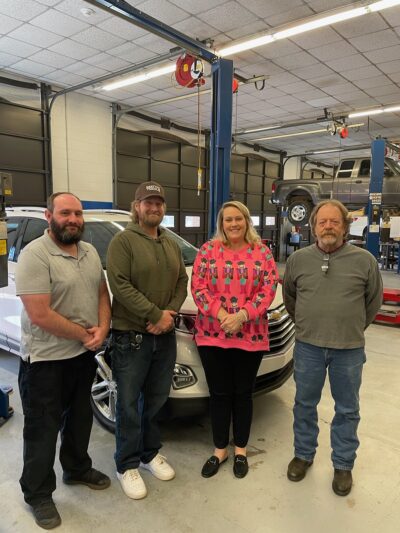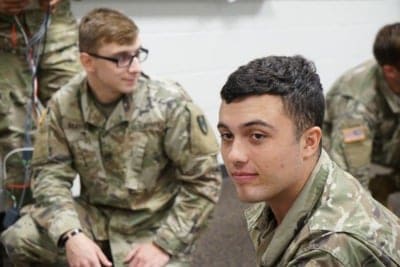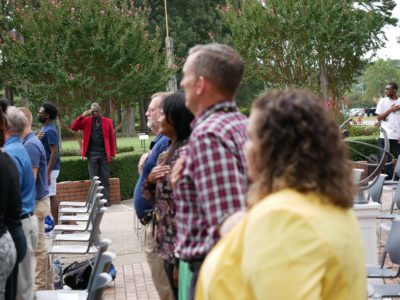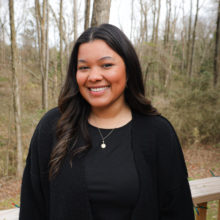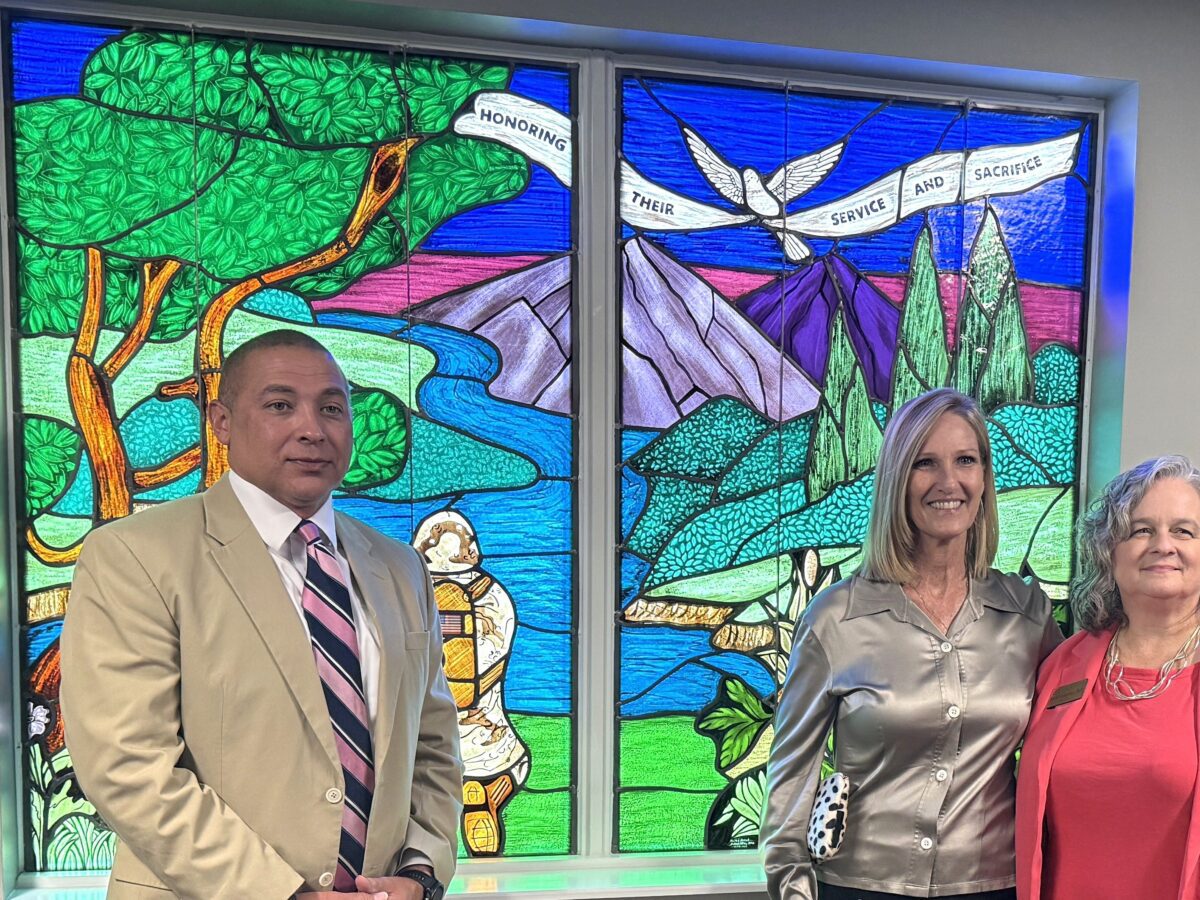
The Veterans Life Center (VLC) is a residential facility dedicated to assisting at-risk veterans in North Carolina. Located in Granville County, the VLC opened in 2020 and has served dozens of veterans since.
According to its website, the VLC is “designed to help at-risk 21st Century veterans and prevent them from falling into crisis — chronic homelessness, incarceration, suicide, or premature death.” The VLC aims to provide short-term housing for veterans “experiencing reintegration challenges.”
The VLC was an instrumental support for Kyle Harris, a student at Vance-Granville Community College, who received the Dallas Herring Achievement Award earlier this year. You can read Kyle’s story here.
EdNC toured the VLC with myFutureNC in July. The state’s attainment goal is to have 2 million North Carolinians aged 25-44 hold an industry-valued credential or postsecondary degree by 2030.
The 40,000-square-foot facility features a library, gym, study areas, computer lab, and can accommodate up to 100 veterans, who can stay at the VLC for up to two years. The VLC also has an interfaith chapel, which features a custom-made stained glass window.
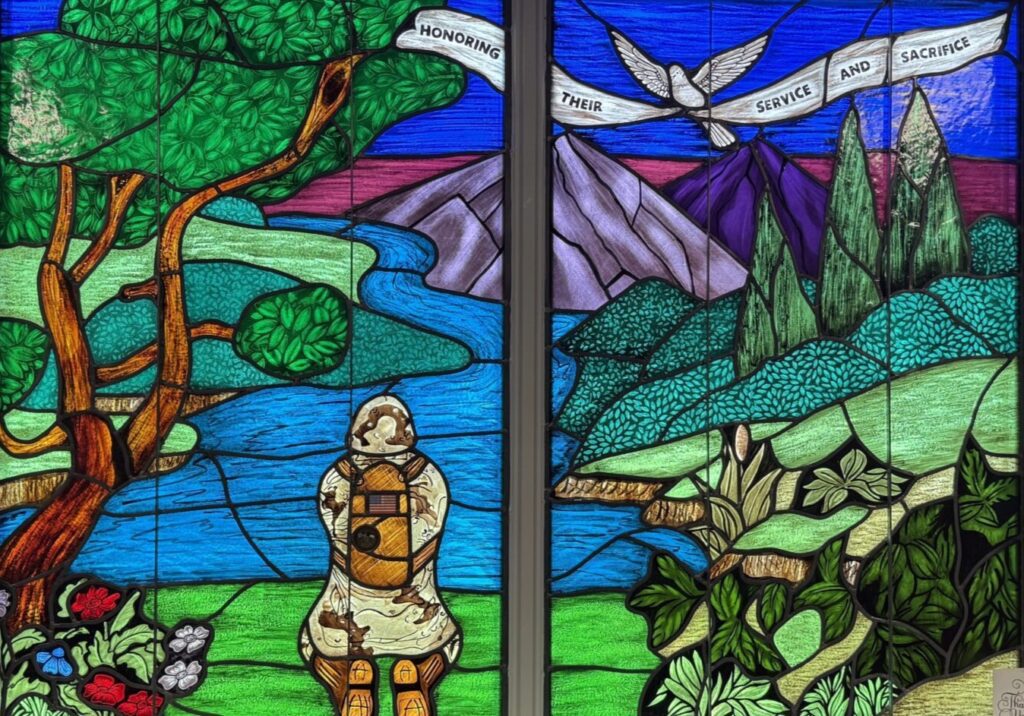
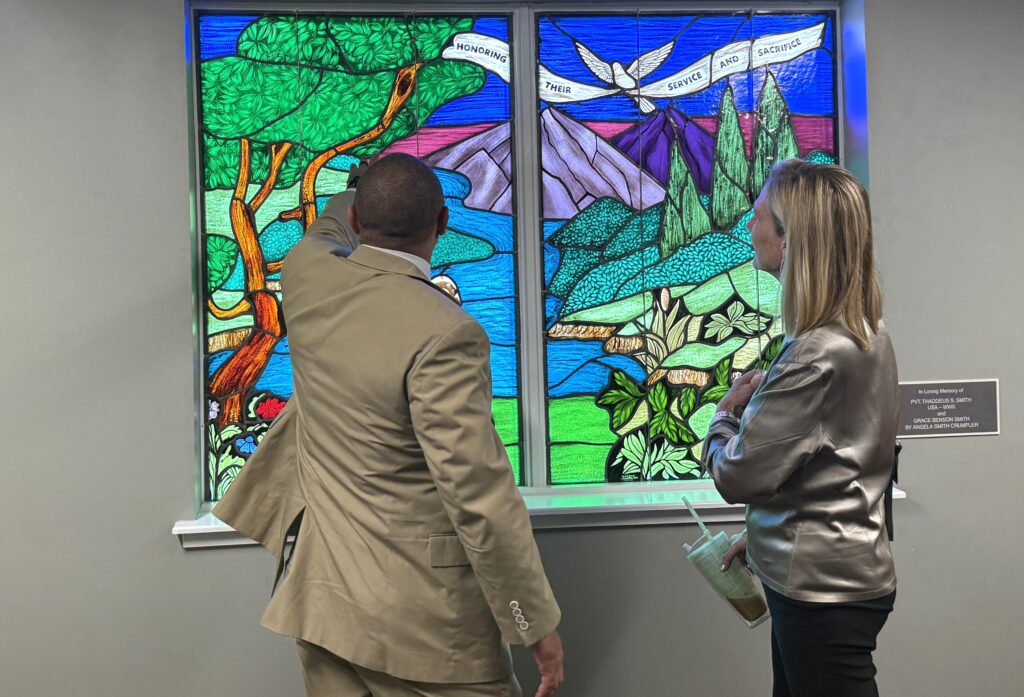
John Turner, the executive director of the VLC, said the effectiveness of the VLC is thanks to the individualized attention staff can provide.
“Everything we do here is based off the individual. We have a program, but the program gets cut into what the individual needs,” Turner said.
According to Turner, the VLC is currently at 65% capacity. Turner also said that 75% of the VLC’s residents come to the VLC with addiction challenges — adding another layer to the work.
During their stay, residents are encouraged to enroll in courses at Vance-Granville Community College, which has a few campuses within driving distance of the VLC. Thanks to a grant from the United States Department of Agriculture, the VLC can offer shuttle services to the college.
Through the North Carolina Department of Military and Veterans Affairs, the state will match up to $750,000 in funds each fiscal year “to provide rehabilitation and reintegration services and support to veterans across the State.” There are more than 615,000 veterans living in North Carolina, according to 2023 data from Carolina Demography.
Turner said the VLC also receives some funding from the North Carolina Department of Health and Human Services, which owns the building. Otherwise, the VLC is funded largely by private donors and operates under an annual budget of about $2.6 million.
On their first day at the VLC, each veteran is gifted a handmade quilt.
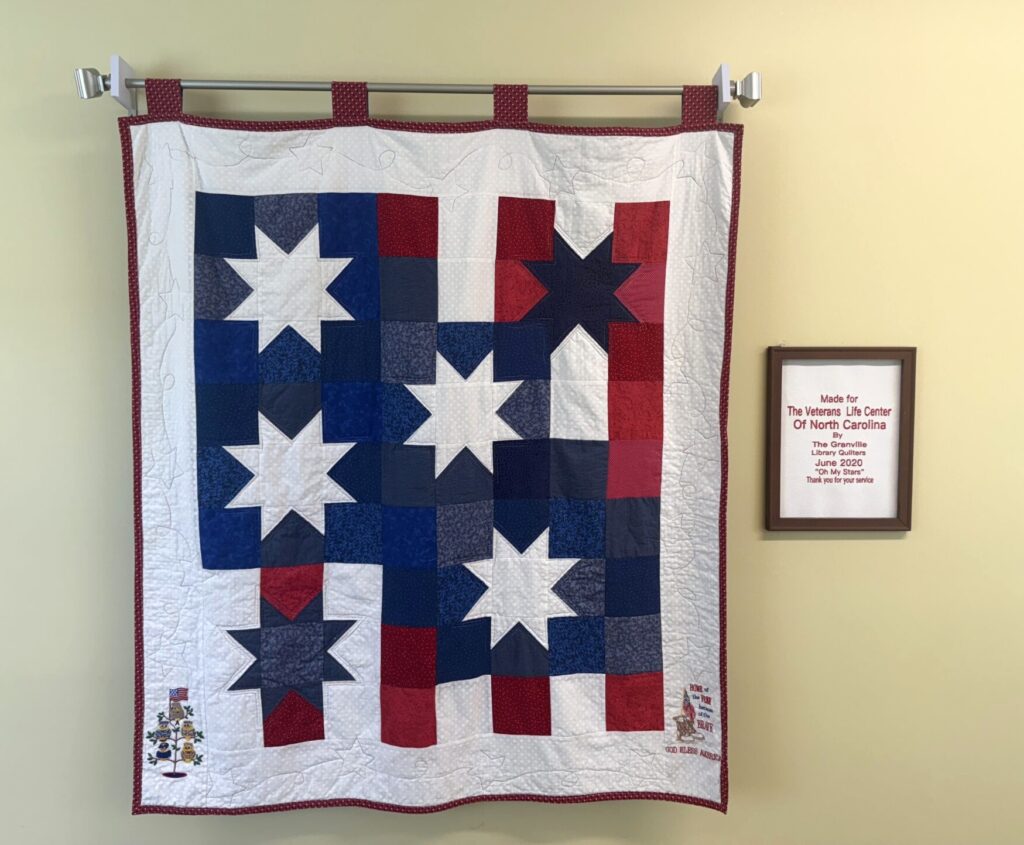
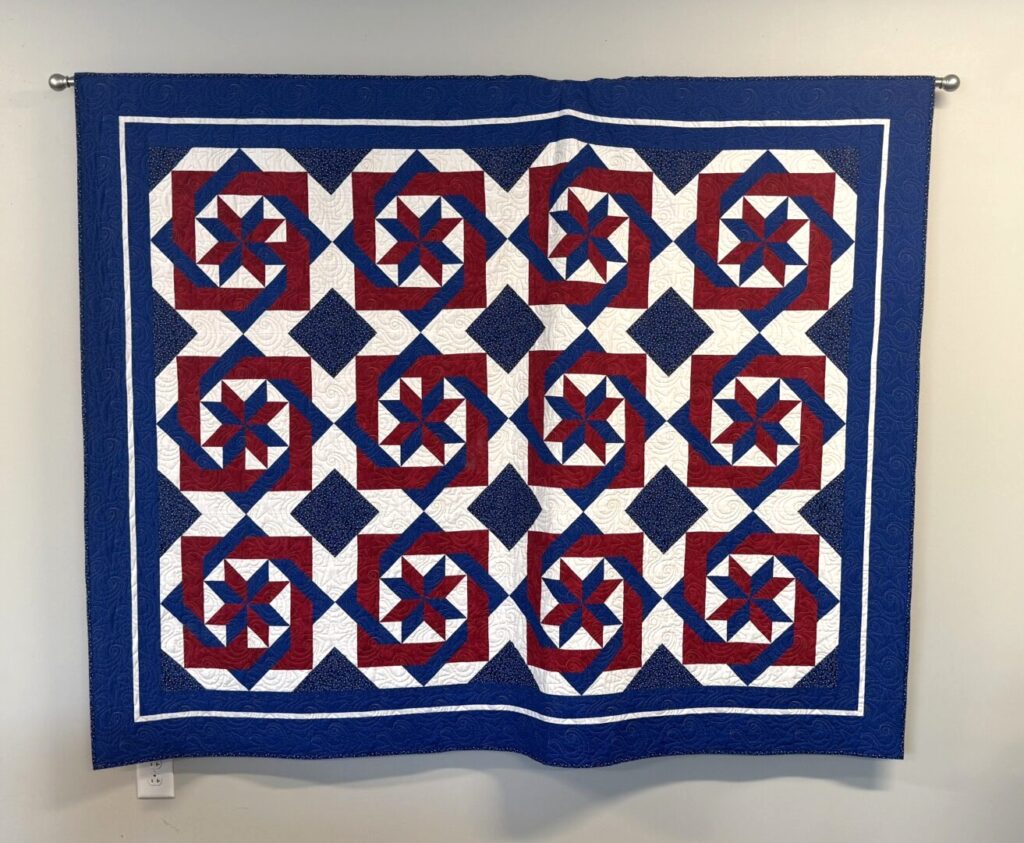
The VLC staff of 12 includes case managers, spiritual advisors, and health care providers. Residents are offered a space for private telehealth sessions with a licensed nurse practitioner, but the VLC also has practical nurses and registered nurses on staff.
Residents come to the VLC through referrals, whether that be family, friends, staff from shelters, or elsewhere. Before acceptance, veterans apply and then go through interviews with staff.
“To make that kind of transition out of the military is a challenge. Some people get lost, but we find them, and we help them get on the path,” Turner said.
That path, Turner explained, can also include helping residents repair their credit, pay off debt, gain custody of their children, maintain sobriety, and more.
According to Turner, the average FICO credit score of a resident upon arrival is about 443, and the average FICO credit score at graduation is 727.
Helping veterans transition back into the workforce is just one piece of the VLC’s efforts, Cecilia Holden, president and CEO of myFutureNC, said.
“What we hope for our veterans when they transition back to civilian life is that they have a wonderful path forward based on either a credential or a college degree or whatever leads them to a job of their choice,” Holden said.
Recommended reading
